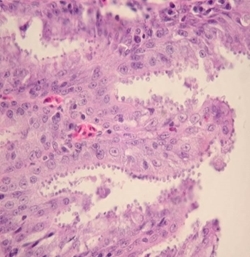 If you encounter a number of sick or dead wild birds or mammals, the incident is likely to be of interest to government laboratories. The Diseases of Wildlife Scheme (DoWS) is run by Defra’s Animal Health and Veterinary Laboratories Agency (AHVLA). DoWS is the national scheme for the majority of wildlife species, but it also leads a broader partnership, the the Great Britain Wildlife Disease Surveillance Partnership, which is run in collaboration with SAC Consulting, the Food & Environment Research Agency (FERA), the Institute of Zoology, WWT, Natural England, Forestry Commission England and the Centre for Environment, Fisheries and Aquaculture Science (CEFAS).
If you encounter a number of sick or dead wild birds or mammals, the incident is likely to be of interest to government laboratories. The Diseases of Wildlife Scheme (DoWS) is run by Defra’s Animal Health and Veterinary Laboratories Agency (AHVLA). DoWS is the national scheme for the majority of wildlife species, but it also leads a broader partnership, the the Great Britain Wildlife Disease Surveillance Partnership, which is run in collaboration with SAC Consulting, the Food & Environment Research Agency (FERA), the Institute of Zoology, WWT, Natural England, Forestry Commission England and the Centre for Environment, Fisheries and Aquaculture Science (CEFAS).
The objectives of this partnership are:
- Investigation of new and emerging diseases (e.g. avian flu)
- Surveillance of zoonotic diseases (transmissible to man, e.g. rabies, avian flu, fox tapeworm)
- Surveillance for diseases infectious to domesticated stock (e.g. salmonellosis)
- Surveillance for exotic infections (e.g. West Nile virus)
- Investigation of diseases that may reflect pollution (e.g. secondary poisoning from rodenticide use)
- Investigation of wildlife mass mortality incidents (excluding Cetaceans)
Among the partnership organisations there is very considerable expertise (the AHVLA itself has investigated wildlife diseases since the 1970s), and the aims are important both for human interests (bovine TB, avian flu, classical swine fever) and for biodiversity – but the budget is modest. Nevertheless, examination of wildlife specimens is carried out at no charge, and the person submitting the specimen receives a copy of the post mortem report.
There is no species focus, although particular diseases become topical from time to time (e.g. squirrel viral diseases, European brown hare syndrome, avian flu).
In general, if you notice an unusual number of deaths or unexplained symptoms in wild bird or mammal populations, or find dead any species of conservation concern, it is well worth making an initial phone call. The 17 veterinary regional laboratories are detailed on the Defra website. Not all specimens can be accepted (e.g. road traffic victims and single deaths are rarely of interest). If you are invited to submit specimens, they can be posted (up to the size of a rook) or hand delivered. NB: Cetaceans are excluded from this initiative – do not send dead whales!